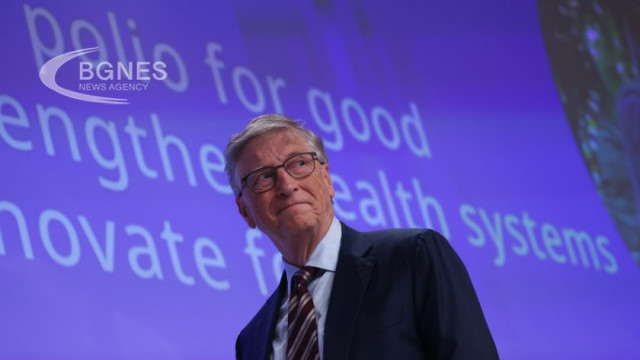It's no secret that Bill Gates is a proponent of artificial intelligence, and now he's predicting that this technology will lead to a positive transformation for everyone in the next five years.
The rise of artificial intelligence has sparked fears that the technology will eliminate millions of jobs worldwide. The International Monetary Fund reported this week that around 40% of jobs worldwide could be affected by the rise of AI. Gates doesn't necessarily disagree with that notion, but he believes history shows that with every new technology comes fear and then new opportunities arise
"Like we had [with] agricultural productivity in 1900, people were like, "Hey, what are humans going to do?" Actually, a lot of new things, and not only that, have emerged in a lot of new job categories have been created and we're a lot better off than when everyone was doing farm work," Gates says. "It's going to be something like
In an interview with CNN's Farid Zakaria on Tuesday, Gates predicted that artificial intelligence will make everyone's lives easier, namely pointing out that it will help doctors process their paperwork, which is "part of the job they don't like, we can make it very efficient."
Since there is "not a lot of new hardware" needed, Gates said access to the AI will be through "the phone or computer you already have, connected through the internet connection you already have."
He also said the improvements with OpenAI's ChatGPT-4 are "dramatic" as it can "essentially read and write", thus it's "almost like having a white-collar worker to be a teacher, to give health advice, to help write code, to help with tech support calls". He said incorporating this technology into the education or medical sector would be "fantastic".
Microsoft has a multi-billion dollar partnership with OpenAI. Gates remains one of Microsoft's largest shareholders.
"The goal of the Gates Foundation is to make sure that the delay between benefiting people in poor countries and reaching rich countries will be very short," Gates told Zakaria in Davos for the World Economic Forum. "After all, the shortage of doctors and teachers is much more acute in Africa than in the West."
In its report this week, the IMF takes a much less sanguine view. The group says artificial intelligence will deepen inequality without the intervention of policymakers. /BGNES







